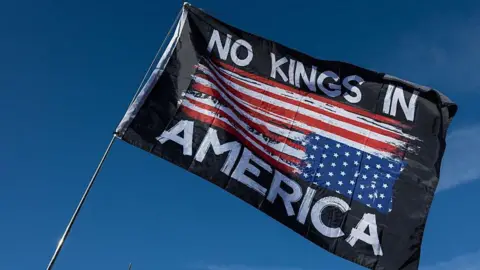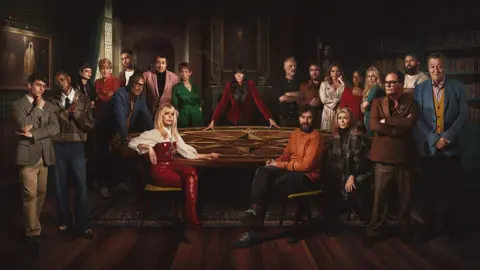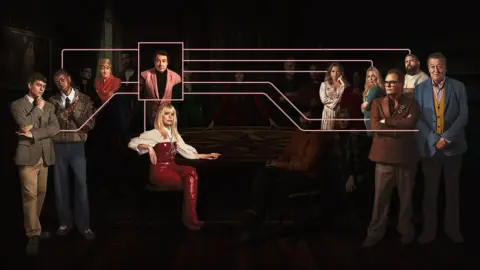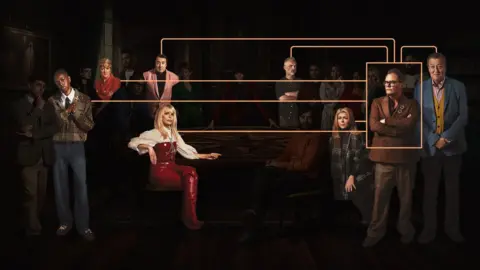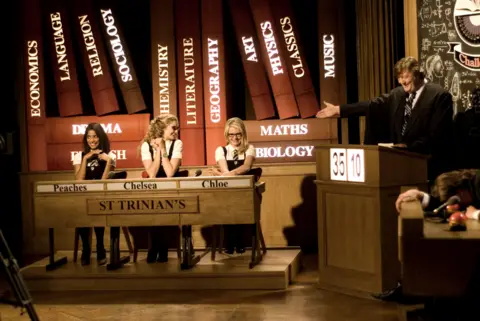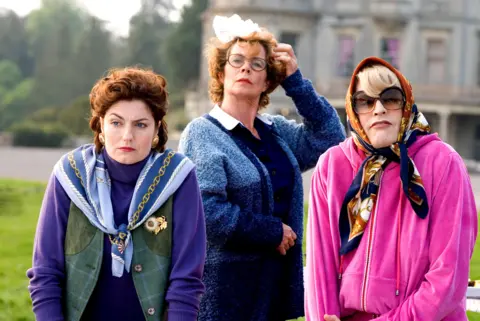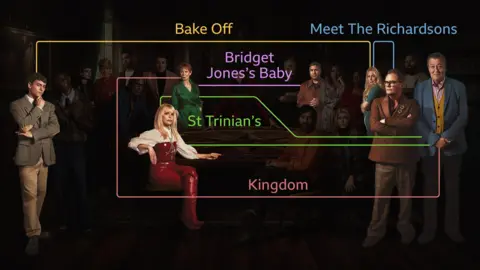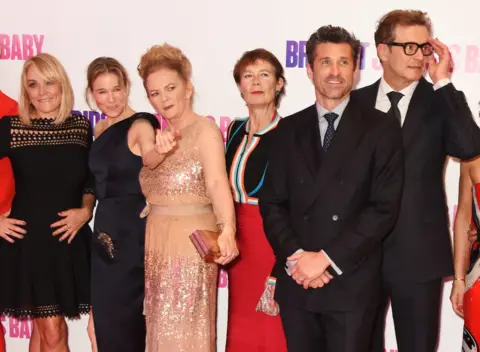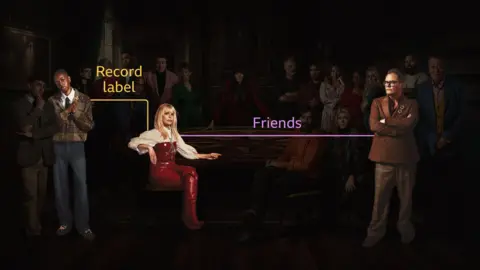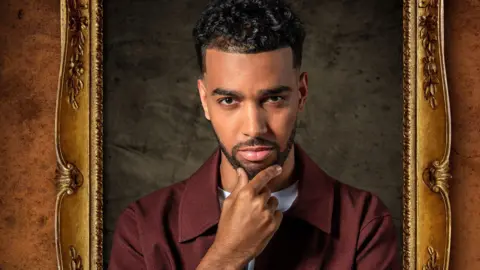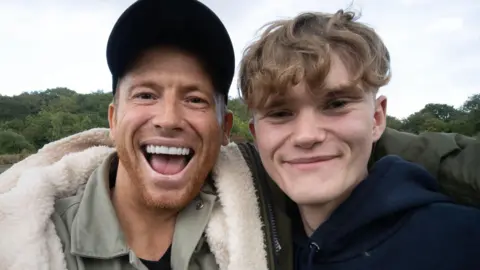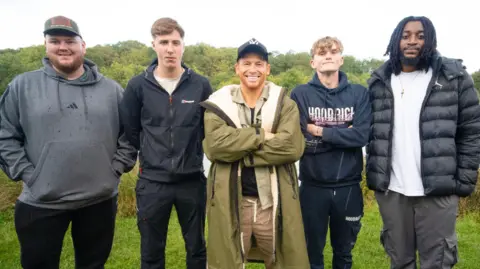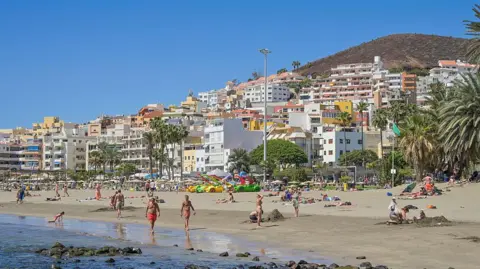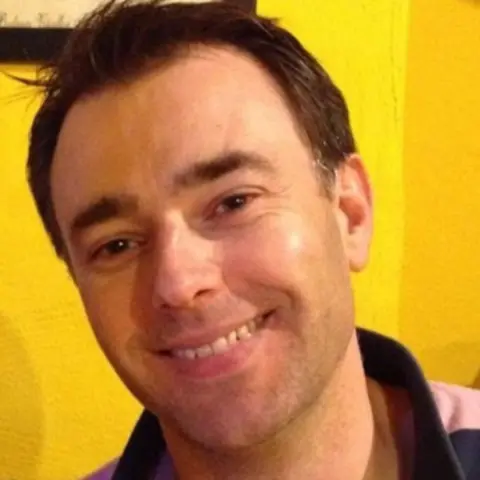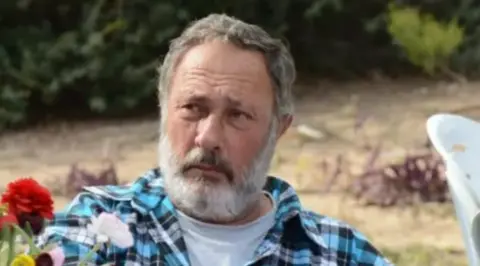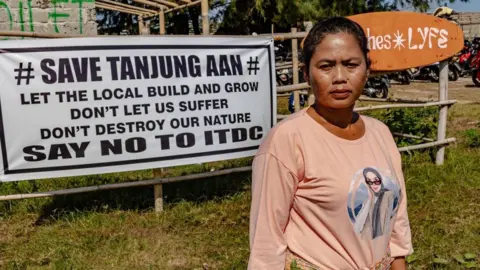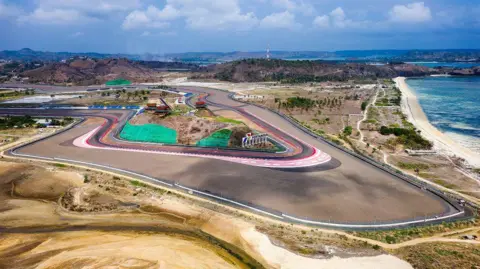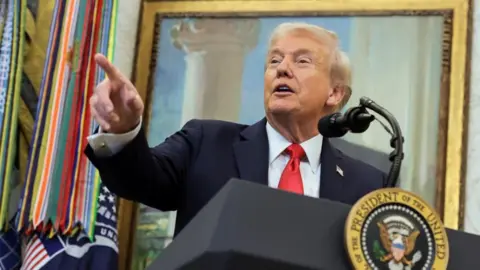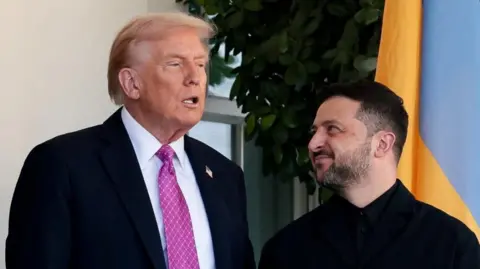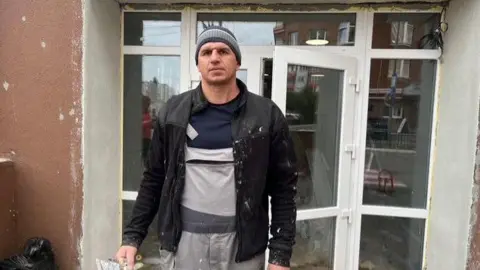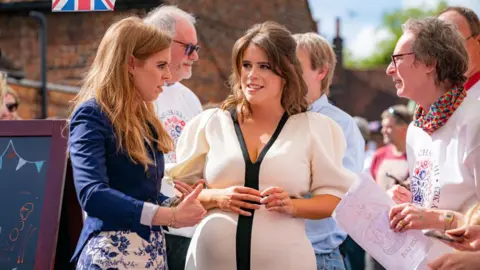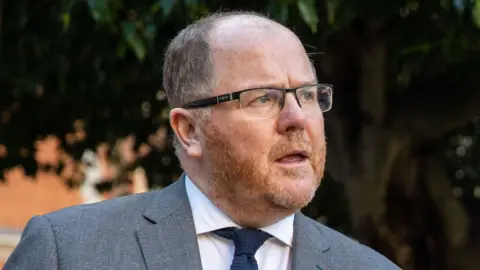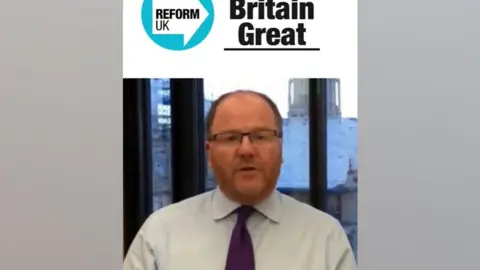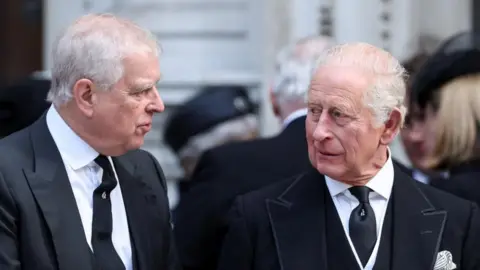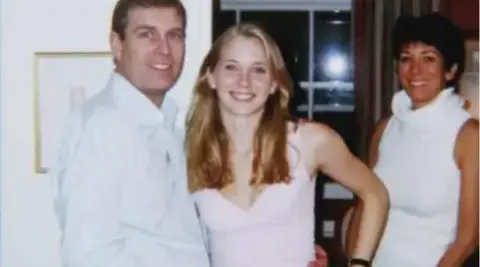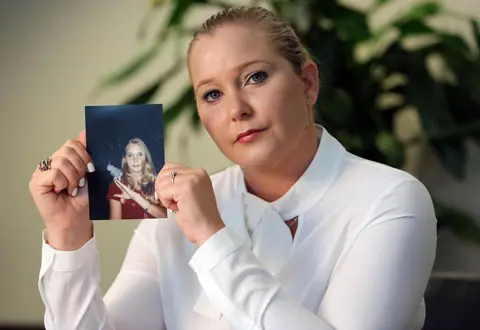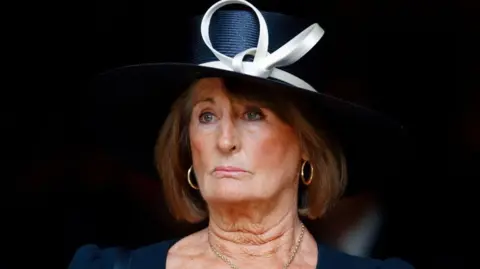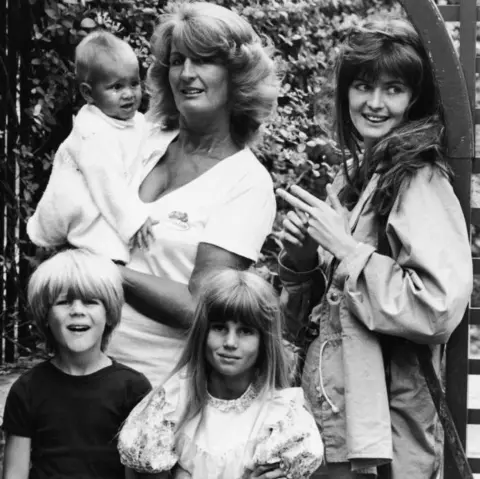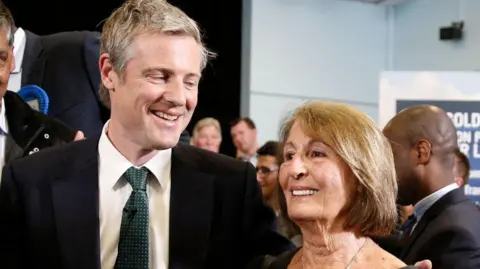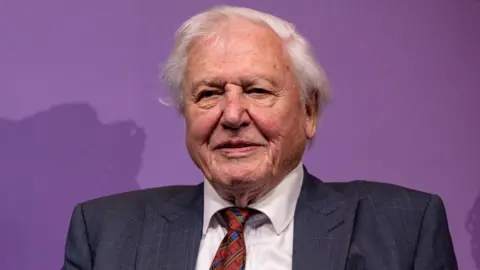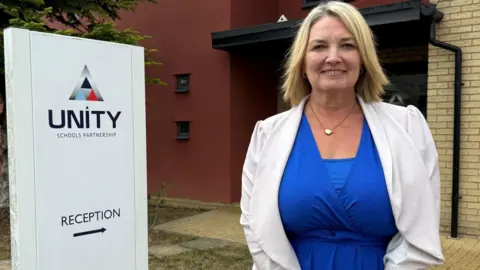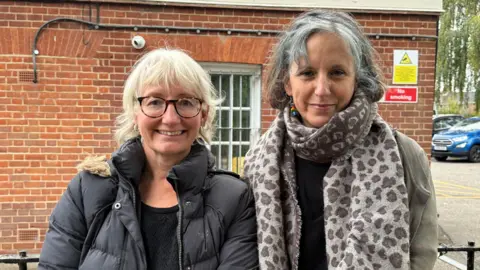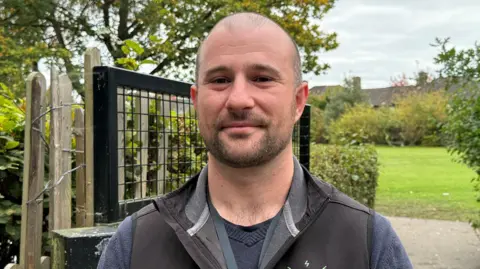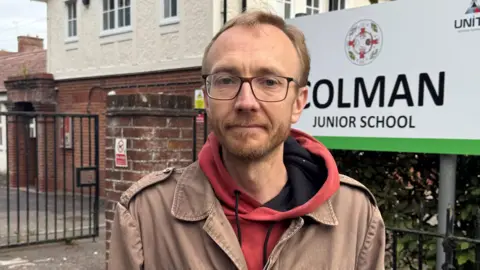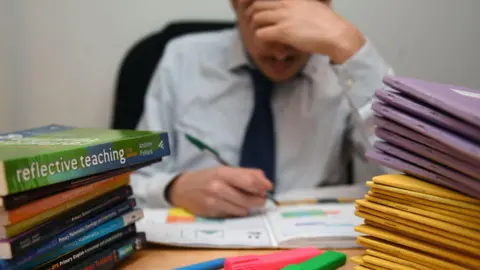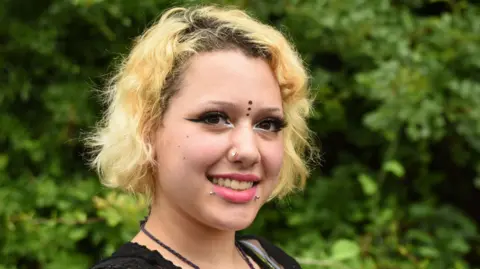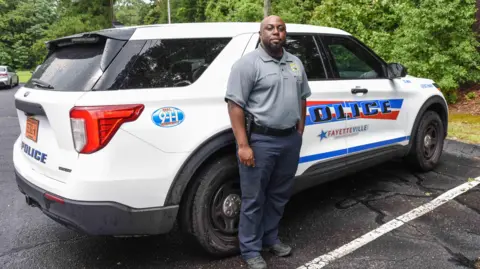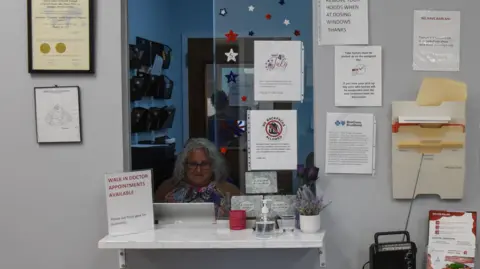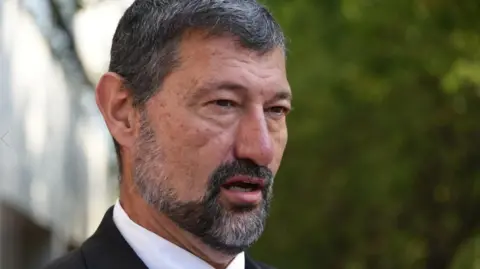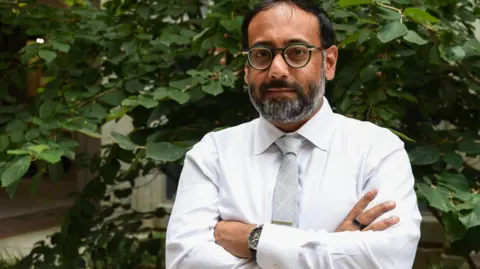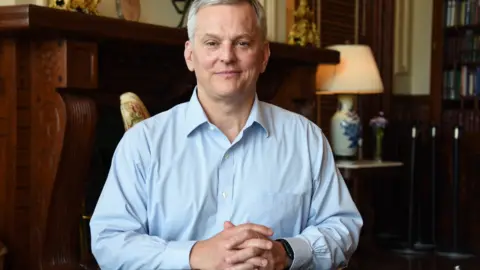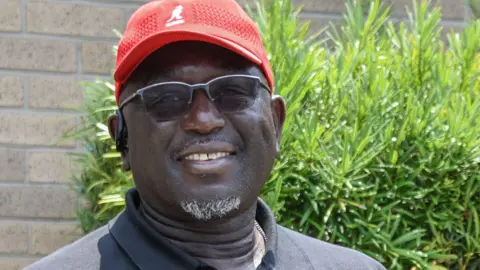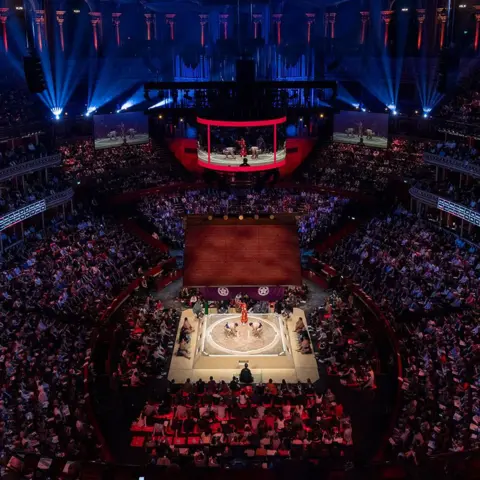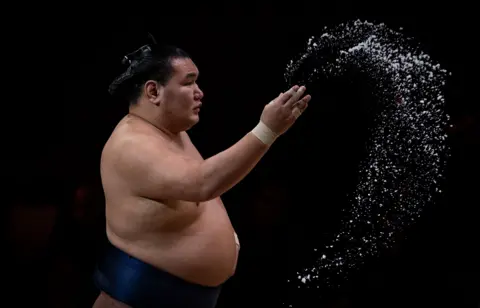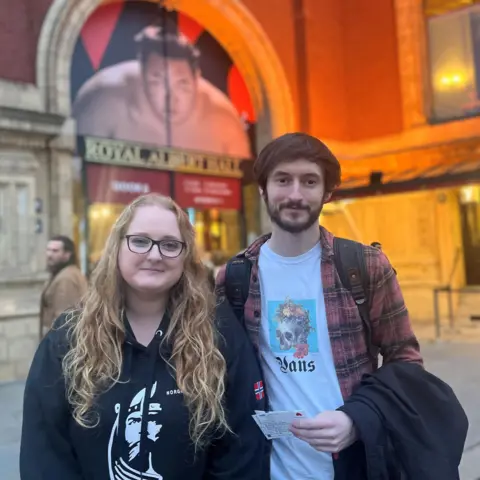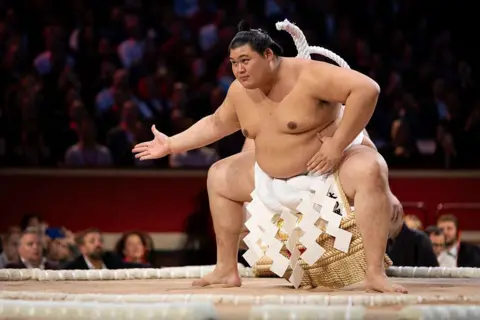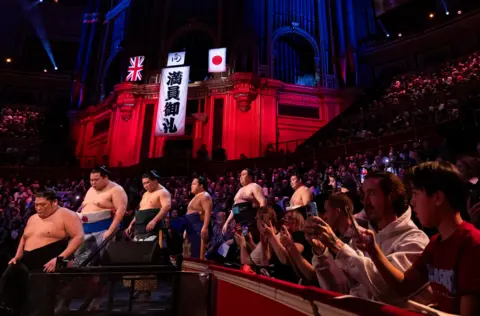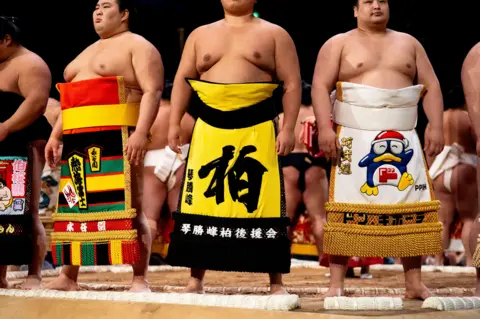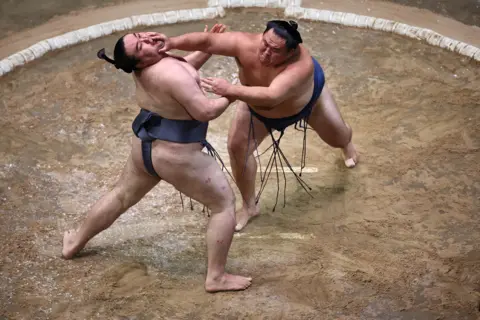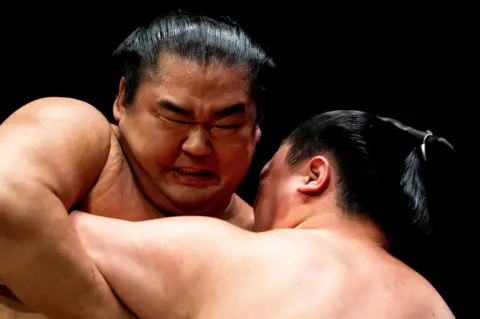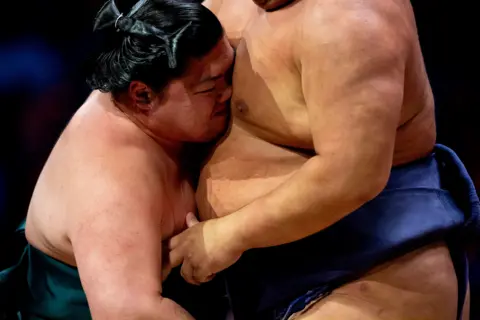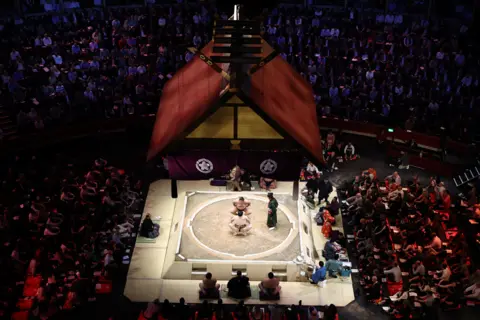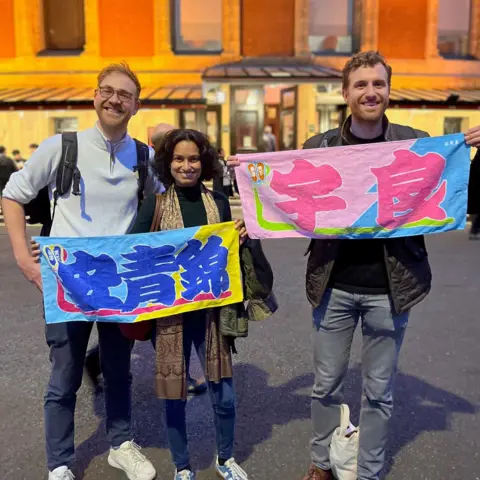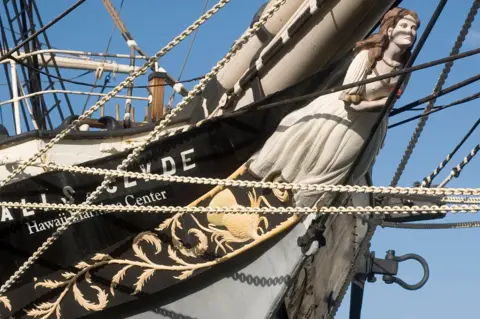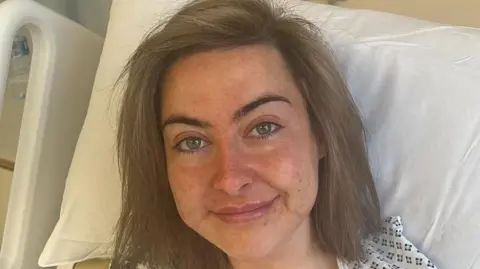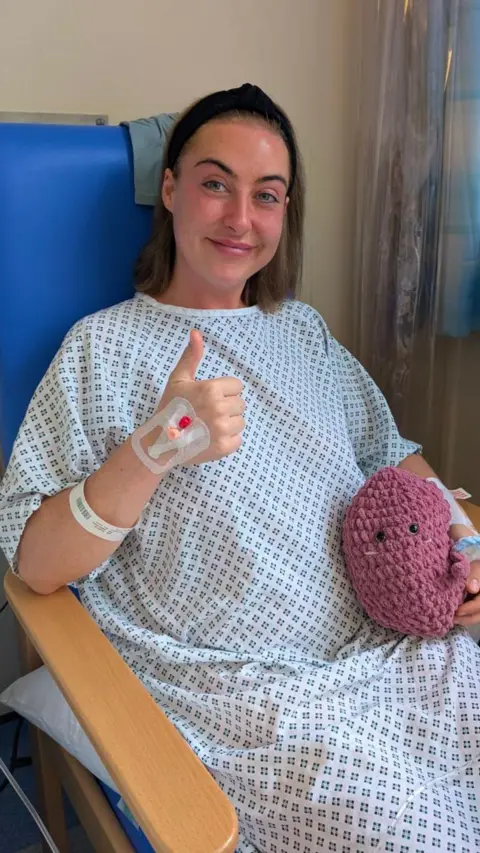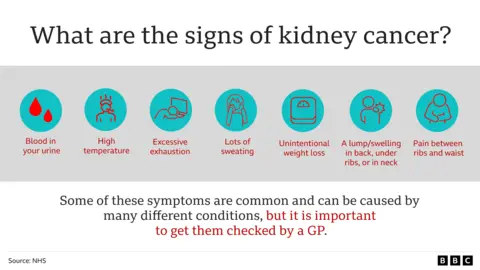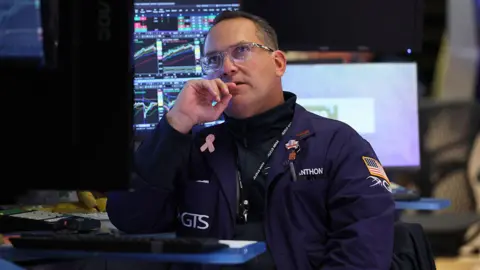Will giving up his titles really make much difference for Andrew?

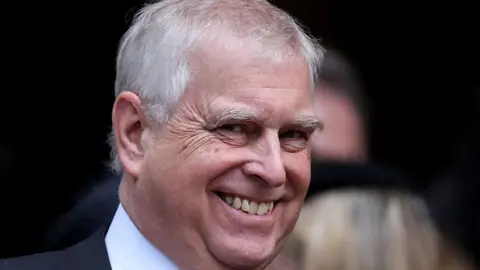 Reuters
ReutersWe're unlikely to see Prince Andrew at a royal public event now for at least six months. And then maybe only once or twice a year.
Banned from royal Christmas celebrations at Sandringham he won't be on the annual church walk. It could be April 2026, at the Easter church service, before he reappears on such a family occasion, maybe longer.
But when he resurfaces, how much will his life have really changed, despite the drama of the loss of his titles and honours?
The move against Andrew followed a public outcry for some kind of sanction and there's certainly been a powerful symbolic message of displeasure - but will it really end the accusing headlines and will his daily life be much affected?

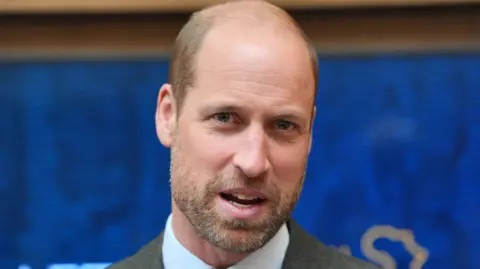 PA Media
PA MediaBuckingham Palace will hope that this will be seen as a decisive intervention, ending the drip-drip of scandal.
The King was in Scotland when Andrew made his decision on giving up his titles and reportedly spoke to his brother on the phone.
He had consulted Prince William, who has all the warmth of an ice age for his uncle Andrew. When William is eventually on the throne, Andrew's royal appearances might be reduced from rare to never.
It had been William who had already intervened to stop Andrew from walking in the Order of the Garter procession.
There has been a colossal loss of reputation for Prince Andrew and he'll keenly feel no longer being able to use the Duke of York title and to take part in the Order of the Garter. He's become a persona non-garter.
It's a deep blow to his pride. But on a day-to-day basis, he's still a prince and he's still living in a mansion in Windsor. Royal Lodge has got a lease until 2078, so if he leaves it will be his own choice.
Living with him still will be his ex-wife, who is now also an ex-duchess. They've gone back to the position when they first met, Sarah Ferguson and Prince Andrew.
His downfall has been driven by his links with the sex offender Jeffrey Epstein. But while Andrew has lost his status, if he ever looks at the infamous photo of him and Virginia Giuffre, everyone else in the picture - Ms Giuffre, Ghislaine Maxwell - and the person who was claimed to have taken it - Epstein - are either dead or in prison. The prince is the only one who has walked away.
He can still spend his days watching aviation videos or TV shows. His family life with his daughters, who are still princesses, can continue unchanged.
His statement about not using his titles, more or less a resignation letter, didn't have any flicker of remorse, continuing to assert his sense of duty and honour. So no change there.

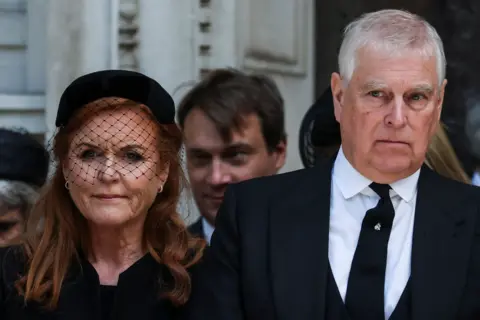 PA Media
PA MediaWhen Andrew had to stop being a working royal, in the wake of his Newsnight interview, there was an expectation that he might take the time-worn approach of quiet contrition and some charity work, to gradually regain public respect.
Instead he showed no sense of regret. A royal insider, asked about Andrew's chances of a dignified return to public life, simply said to me: "The grand old Duke of York, he gave 12 million quid, to someone he never met, for something he never did."
It meant he had never really accepted responsibility for what had happened. Several years later, the only thing that's changed is that he's no longer the Duke of York.
The intense pressure applied this week by the Palace to Prince Andrew to accept the loss of titles was driven by two key factors, according to royal sources.
First, the Palace wanted to stop the cacophony of terrible headlines about Andrew that kept drowning out the rest of the Royal Family's work. They wanted a line drawn under the scandals.
And second, there was genuine disquiet at the discovery that Prince Andrew had stayed in touch longer with Epstein than he had previously admitted. If that part of his account was unreliable, what else might emerge?
Getting Prince Andrew to renounce the use of his titles, under the threat of forcibly taking them away, was an attempt to publicly show that the Palace was taking this seriously. They would put an end to his remaining links with royal life.
Although this made headlines around the world, it won't stop the underlying questions about Prince Andrew and Epstein and the accompanying headlines.
This week will see the publication of the posthumous memoir of Virginia Giuffre, an Epstein victim who claimed to have been forced to have sex with Andrew.
The prince has emphatically denied any wrongdoing, but the questions for Andrew about Ms Giuffre and Epstein seem to be getting louder than fading away. There could also be questions about what the Palace did or didn't know about Andrew and Epstein's circle.
Whether he's called a prince or an ex-duke, he's could still be caught up in the public and political pressure to reveal more documents about Epstein, particularly in the United States.

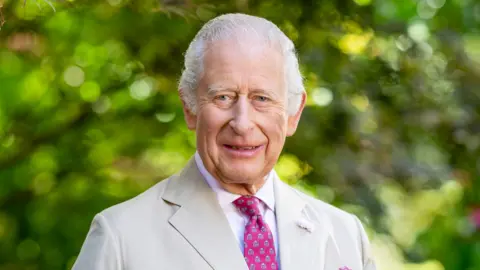 PA Media
PA MediaThe press will keep pulling on other threads, like Andrew's business dealings with China. Whatever the Palace hopes, the headlines are unlikely to stop.
At the centre of it all is Prince Andrew, saying nothing now apart from his terse statement, written through gritted teeth, about his titles.
Before his Newsnight interview in 2019 he had been much more open to talking to the media. I remember speaking to him at an event in 2017 encouraging entrepreneurs.
Looking back it seems unintentionally prophetic.
"One of the things that I was taught at school was that the best way of being successful is to fail," he'd said.
"If you can learn about failure, and do it in such a way that it's a safe environment… then you will have learnt something, you will have experienced something.
"How many times did you put your finger in the plug socket as a small child and say 'ow' - and you never did it again.
"If you did it a second time, you'd think that was really stupid. They've failed and then they've learned what not to do next time," said Prince Andrew.
"You're always stronger from failure." Is that a lesson he was ever good at learning?


Sign up here to get the latest royal stories and analysis every week with our Royal Watch newsletter. Those outside the UK can sign up here.
